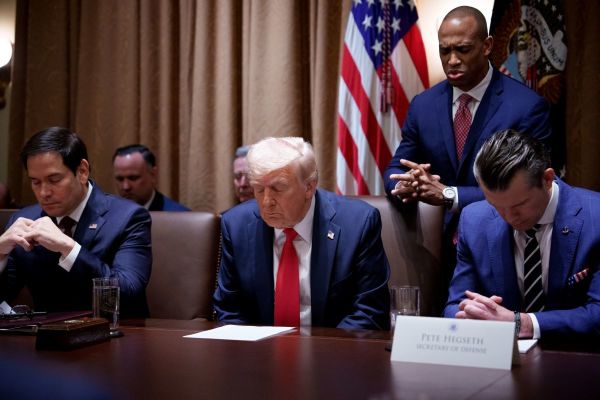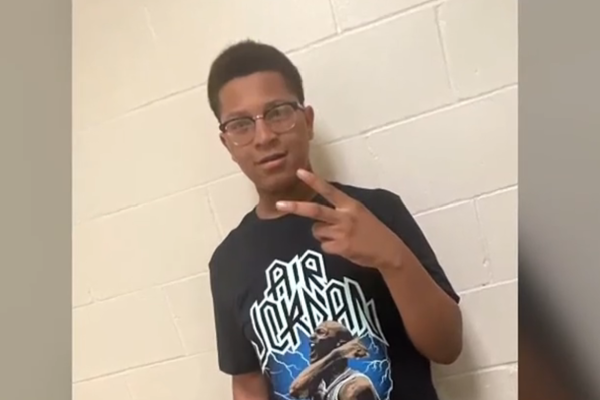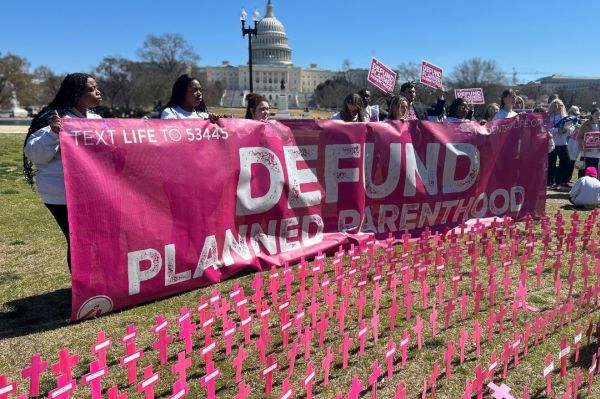On March on Washington Anniversary, Obama Stresses Economic Opportunity
President Barack Obama focused on many social and civil rights issues, with a major focus on the economy, during his lengthy speech at the steps of the Lincoln Memorial on Wednesday for the 50th anniversary of the March on Washington for Jobs and Freedom event, where Martin Luther King Jr. gave his famed "I have a dream" speech a half century ago.
Obama told the thousands gathered on the National Mall about the importance of economic opportunity in the road to equality.
After describing the historical event they were remembering and putting it in the context of the grand narrative of American history, President Obama argued that "pursuit of happiness requires the dignity of work."
"Dr. King explained that the goals of African Americans were identical to working people of all races: 'Decent wages, fair working conditions, livable housing, old-age security, health and welfare measures, conditions in which families can grow, have education for their children, and respect in the community'," said Obama.
"For the men and women who gathered 50 years ago were not there in search of some abstract ideal. They were there seeking jobs as well as justice. Not just the absence of oppression but the presence of economic opportunity."
Obama spoke with concern that oftentimes people may have forgotten about this "second dimension" of the struggle, as the full name of the 1963 event was "The March on Washington for Jobs and Freedom."
"In some ways though, securing these civil rights, voting rights, eradication of legalized discrimination the very significance of these victories may have skewered the second goal of the march," said Obama.
"For what does it profit a man, Dr. King would ask, to sit at an integrated lunch counter if he can't afford the meal?"
Large numbers of people gathered before the Lincoln Memorial, crowding along the sides of the Reflecting Pool before the steps where Dr. Martin Luther King Jr. addressed speakers a half century earlier. Before President Obama made his appearance, other speakers addressed the crowd, including the Rev. Al Sharpton, actor Jamie Foxx, and Oprah. In addition to various speakers, the gathering in the District of Columbia also featured Gospel music and upon President Obama's arrival a singing of the Star Spangled Banner.
Obama was preceded by two former presidents, Jimmy Carter and Bill Clinton, as well as members of the King family.
Those of the King family who addressed the masses included Dr. Martin Luther King III, son of the civil rights figure, who spoke of the progress made and the progress needed.
"We must redouble and quadruple our efforts. …We've got a lot of work to do," said King, adding that "love and forgiveness is what we need more of."
Around 3 p.m. EDT, the bell from Sixteenth Street Baptist Church in Birmingham, Ala., was rung to mark the time when King came to the microphone in 1963.
Sixteenth Street Baptist was the site of one of the many bombings of black churches and homes during the Civil Rights Era. In 1963, a bomber attacked the church, killing four girls.
"Because they marched the civil rights law was passed, because they marched the voting rights law was signed, because they marched doors of opportunity in education swung open," said Obama.
"Because they marched city councils changed, legislatures changed, and yes, eventually the White House changed."
Obama emphasized that while those back in 1963 could have embraced failure in light of the status quo, "they chose a different path."
"And yet they chose a different path. In the face of hatred, they prayed for their tormentors. In the face of violence, they stood up and sat in, with the moral force of nonviolence," said Obama.
"They had learned through hard experience what Frederick Douglass once taught – that freedom is not given, it must be won, through struggle and discipline, persistence and faith."
Wednesday's event remembering the 1963 March on Washington was preceded by an observance held on Saturday.






















